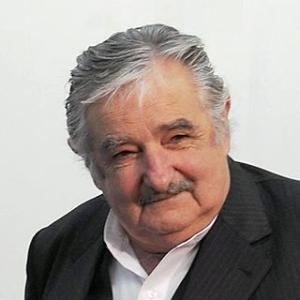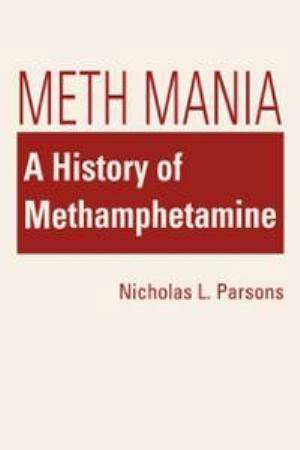A pair of bills, one local and one national, were introduced in Mexico City last week. They address marijuana retail sales, medical marijuana, and more drug decriminalization. Change is in the wind.
We review Nicholas Parsons' Meth Mania: A History of Methamphetamine and find it most useful.
Concern over methamphetamine use and users has generated large amounts of misinformation that lead to bad policies, Dr. Carl Hart and coauthors find in a new report this week. He has some policy prescriptions, too.
The Obama administration took an important step toward legitimizing legal marijuana commerce Thursday by issuing new guidelines that will allow financial institutions to service the industry without fear of federal prosecution.
Powerful players want to wait until 2016 to do a marijuana legalization initiative in California. There are other California initiatives out there, but none appear likely to make the ballot this year.
California counties continue to struggle with dispensary and growing rules, Reno's mayor has a change of heart, some Oregon cities may have to change their ways, and more.
Bad cop, bad cop, watcha gonna do when they come for you? A Seattle-area drug task force deputy defects to the life, a Louisiana deputy parties too hard with stolen drug evidence, a Georgia cop resigns over pills, and more.
A bill has been filed to stop forcing the drug czar to oppose marijuana legalization, CBD medical marijuana bills continue to get attention, and there are big doings south of the border, and more.
Marijuana legalization is dead in the Hawaii statehouse this year, but still kicking at the Oregon capitol, the annual Monitoring the Future survey is out, Uruguay's president chides the US and Europe on drug policy, and more.
Olympic drug testers back off on marijuana, a surprise marijuana vote in New Mexico, a bad medical marijuana bill in Michigan, NYPD's most sued cops are all narcs, a new South Australian law criminalizes some speech about synthetic drugs, and more.
Marijuana legalization is unlikely to come to California this year, ditto for Missouri, ditto for medical marijuana in Iowa. Meanwhile, a SWAT reporting bill is moving in Utah, Singapore is censoring a pot reform web site, and more.
NORML endorses a US Senate candidate, pressure mounts for medical marijuana in New York, West Virginia wants to make Sudafed prescription only, and more.
Late last week, lawmakers in Mexico City filed two bills that would begin to radically transform the country's approach to drugs. One was introduced in the Mexico City legislative assembly and one in the federal legislature.
The moves come as the debate over drug policy in general and marijuana in particular heats up in the region. The legalization of marijuana in Uruguay and the US states of Colorado and Washington has enlivened ongoing efforts at drug reform in Mexico, and the country continues to bleed from the violence associated with criminal organizations that rose to power on the back of drug prohibition.
They also come just days after four former Latin American presidents -- Ernesto Zedillo of Mexico, Ricardo Lago of Chile, Fernando Enrique Cardoso of Brazil, and Cesar Gaviria of Colombia -- penned an open letter in support to Mexico City Mayor Miguel Angel Mancera, himself a proponent of legalization.
"This is a necessary debate to have for Mexico City, Mexico and the entire region," the four ex-presidents said. "Something needs to change as 40 years of immense efforts and funds have failed to reduce both the production and consumption of illicit drugs."
"We believe we're making a very important contribution to a global debate that has to do with rethinking the issue of drugs," Vidal Llerenas, a member of the Mexico City Legislative Assembly and sponsor of the local legislation, said at Thursday news conference announcing the bills.
"The aim of this legislation is not to change the drug sphere in the city, but rather to simply avoid criminalizing those who consume marijuana," said Deputy Eduardo Santillan Perez, another sponsor of the bill.

The Legislative Assembly in Mexico City
The
Mexico City bill would de-emphasize small-time marijuana prosecutions. It would instruct police and judges to
deprioritize prosecution of marijuana violations in some circumstances, and it would create a Portugal-style "dissuasion commission" which could impose administrative sanctions on offenders instead of subjecting them to the criminal process.
The bill would also allow for the limited retail sales of marijuana in the Federal District. Such sales could only take place under certain criteria, including posting warnings to consumers about potential health risks. Retailers would not be allowed to sell to minors or be located near schools, and they would not be allowed to sell adulterated marijuana. Retailers who complied with these criteria would be issued permits to sell marijuana by the district government's Institute for the Attention and Prevention of Addictions.
The federal bill would raise possession limits for the amount of drugs decriminalized under a 2009 law. Under that law, the possession of up to five grams of pot was decriminalized; the new bill would increase that to 30 grams (slightly more than an ounce). It would similar increase the decriminalized possession limits for drugs such as cocaine, heroin, and methamphetamine.
The federal bill would also allow for the use of medical marijuana. And it would devolve some decision making power on drug policy issues from the federal government to states and cities.
There are clear medicinal benefits to using marijuana, said PRD Deputy Fernando Belaunzaran Mendez, and denying these benefits "is like when the clergy denied Galileo's claim that the Earth moves."
The prospects of passage are much better for the Mexico City bill than the federal bill, because the Party of the Democratic Revolution (PRD), whose members introduced both the local and the federal bills, dominates the Mexico City assembly, but not the federal one. Mexico City, which has moved to allow abortion, divorce, and same-sex marriage, is also more socially liberal than the country as a whole. The Mexico City bill is likely to be debated early next month.
Both bills had their genesis in discussions that began last summer, when the Mexico City legislature organized public hearings to explore alternative solutions to the city's drug problems. Civil society groups, including México Unido Contra la Delincuencia (MUCD), the Colectivo por Una Politica Integral Hacia las Drogas (CUPIHD), and Britain's Transform Drug Policy Foundation were deeply involved in the drafting process, along with lawyers, medical professionals, security professionals and drug policy experts.
"Of the four specialists that helped draft the bill, two were from CUPIHD," said Alejandro Madrazo Larous, a constitutional law expert, law professor and CUPIHD member who helped draft the bill.
He told the Chronicle that international reform currents were indeed percolating in Mexico.
"As other countries move forward with reforms, it just seems more and more absurd that we are killing each other in Mexico to ban something that is becoming a regulated business," he said.

Reefer Bender in Mexico City wants to legalize it. (Phillip Smith, Drug War Chronicle)
"We welcome this attempt to replace stringent cannabis law enforcement with humane, just and effective alternatives," said
MUCD's Lisa Sanchez. "Decades of punitive responses have failed to reduce levels of use and have effectively left the market in the hands of criminal entrepreneurs whose watchwords are violence and greed. This is a great opportunity for the government to adopt a new approach to drugs and improve the health and safety of its citizens. Let's not waste it."
"On the heels of historic marijuana legalization victories in Washington, Colorado and Uruguay, it's promising to see other countries and jurisdictions following suit. The innovative nature of the marijuana bill -- which combines elements of marijuana regulation models from around the world -- demonstrates that reforms can be tailored to fit the local context," said Hannah Hetzer, policy manager for the Americas at the Drug Policy Alliance.
"Mexico has suffered immensely from the war on drugs," Hetzer continued. "Amidst extreme levels of violence and crime, it is encouraging to see Mexico's capital city attempt to refocus its efforts away from marijuana possession and low-level drug offenses and to invest in reducing violent crime instead."
Madrazo Larous said passage of the bills would smartly reprioritize law enforcement, but that it would take work.
"I think they have a chance," he said. "We are reaching out for more support. If we can pass this at the national level, it would free up resources at the local level which would allow for better criminal investigation and prosecution of violent crimes. Today, we waste too many resources running after consumers and petty dealers."
With marijuana legalization also on both the legislative and the popular agenda in Washington, DC, it appears that Mexico City and Washington are in a race to see which North American capital city becomes the first to allow legal marijuana sales. Sorry, Ottawa.
back to top
Chronicle Book Review: Meth Mania: A History of Methamphetamine by Nicholas Parsons (2014, Lynne Reinner Publishers, 241 pp., $58.50 HB)
What is the "drug menace"
du jour? Crack cocaine? Nah, been there, done that. Bo-ring. Marijuana? Some people still try to find scary things to say about pot, but it just doesn't seem to really resonate anymore. Meth? Been there, done that, too, several times, as you'll see below.
Heroin seems to be a good candidate. After all, if you read the newspapers, especially after a celebrity overdose death, you'll know there's an "epidemic" of heroin use (and related overdose deaths) happening. Except that, while heroin use has increased in the last few years (primarily as a consequence of crackdowns on opioid pain pills), it is hardly an "epidemic." According to the National Survey on Drug Use and Health, the number of people using heroin on a regular is one-tenth of one percent of the population 12 and over. That number stayed stable from 2010 to 2012, the last year available for the survey, although it has apparently increased somewhat since then. And while overdoses are up, they are nowhere near the number of deaths for prescription pills.
But heroin, too, is old hat. One of the elements of a good drug panic is novelty. On that count, both "bath salts" (synthetic stimulants derived from cathinones) and "Molly" (a powder form of MDMA) are contenders for the crown. There's nothing like a zombie cannibal ripping someone's face off to propel a good drug panic, as was the case with bath salts, even if he didn't actually eat the guy's face and even, as it turned out, if he wasn't on bath salts.
While bath salts users are portrayed as scary insane people who aren't us, Molly users, on the other hand, are our sons and daughters, the innocent victims of evil drug dealers. Innocent victimhood is always good in whipping up a drug panic.
But again, the number of people actually consuming bath salts and Molly is miniscule. By far the biggest psychoactive drug problem in America, in terms of effects on the health of consumers, adverse impacts on others, and criminal justice system impacts, is alcohol. Yet, somehow, the country's most widely used and misused drug doesn't merit the screaming headlines, the hyperbole, the hysteria, and the hand-wringing. Why is that?
In Meth Mania, Nicholas Parsons provides some hints of an answer. While the book delivers what its title promises -- a critical history of meth, written with verve and insight -- it is also an exercise in applying the framework of social constructionism to the way we define and create social problems in general and drug panics in particular. Social constructionists, Parsons explains, attempt to understand how, why, and when certain social phenomenon come to be defined as social problems.
At any given moment, there are a panoply of issues -- child abuse, pornography, homosexuality, drug use, poverty, inequality, among others -- that could be defined as social problems. And social problems require solutions, darn it, otherwise, they wouldn't be problems. What social problems also require is someone to define them as such.
For Parsons and the social constructionists, these people are "claims makers." To be an effective claims maker, you must be credible and you must have access to the media. When it comes to drugs and drug policy, claims makers have traditionally been law enforcement, the medical profession, scientists, and moral entrepreneurs -- individuals or groups who seek power or influence by defining a phenomenon as a social problem and offering to do something about it. (I would posit that the advances we have seen in drug reform are, to some degree, the result of decades of work to both create alternate credible claims makers to cast the debates in new terms and to undermine the credibility ot traditional drug policy claims makers.)
Parsons is especially interesting in his discussion of law enforcement as a claims maker when it comes to drugs. Not only do police have authority and credibility as protectors of the public safety, they also have well-developed PR departments (although they don't call them that) that are constantly churning out press releases, er, I mean crime and arrest reports, they have very close and easy, and long-standing access to the media.
And, of course, law enforcement has its own interests to protect. Parsons notes one particularly brazen example of self-interested panic purveying, the "ice" scare of the late 1980s. The DEA jumped all over that -- until its annual budget was secured, then not so much.
This leads me to something Parsons didn't discuss, but which I have long wondered: Why, exactly, are police considered experts on drugs? Because they arrest drug users? Police arrest domestic violence suspects, too, but that doesn't make them experts on domestic bliss, as their own divorce and domestic assault rates indicate.
Parsons identifies three distinct meth panics -- the Speed Kills! methedrine panic of the late 1960s and early 1970s, the abortive "ice" panic of the late 1980s, and the meth panic that began near the end of the century and peaked around 2005, although its lingering effects still persist. In all three cases, although less clearly so in the latter, Parsons crunches the numbers on meth use and finds that the panics are related less to actual use rates than to media attention paid to the drug. And media attention paid to the drug is likewise driven not so much by actual use as by claims makers managing to get traction for their claims, for a variety of reasons.
Parsons is also good at elaborating how we construct "folk devils" on which to hang our anxieties, and how those folk devils have changed over time. This is the stuff of stereotyping and Othering. Meth users are "zombie McGyvers," tweaked-out tinkerers who haunt Walmarts in the middle of the night. Or they are -- gasp! -- gay nightclub orgiasts in New York City. That's when they're the Other.
In some adumbrations of meth panic, users shift from the scary Other to the innocent victim, who fall prey to evil Other drug dealers. And it's even more helpful when scary Other drug suppliers have brown skins, like the Mexican drug cartels who, in the wake of various moves to repress domestic meth production, such as the current effort in West Virginia to make OTC cold medications containing pseudoephedrine prescription only, have taken an ever-increasing share of the US meth market.
I refer to those bills generically as "The Mexican Methamphetamine Market Share Enhancement Act," and Parsons makes a similar point: All of the efforts to repress the use and manufacture of meth have had unintended consequences that in most cases have only exacerbated the problems they were supposedly designed to solve. The imposition of controls on prescription meth and other amphetamines in the late 1960s led directly to the first round of outlaw biker-manufactured meth, and the switch from "eatin' speed" to "shootin' speed." They probably also played a role in the expansion of cocaine and crack use in the 1970s and 1980s.
Restrictions on precursor chemicals used in the P2P method led to the explosion of pseudoephedrine-based meth cooking. And continuing and deepening restrictions on meth and precursors have created the space for the new synthetic stimulants, the so-called bath salts, whose effects can be even more intense than meth.
The latest meth panic may be receding, but its effects linger. People making small amounts of meth for personal use in the one-pot method are still being arrested and sentencing as if they were major drug lab operators. New anti-meth laws still emerge at statehouses each year. And people who use meth are still demonized as if far outlier worst cases are the normal meth experience.
Meth Maniais an excellent history of America's love-hate affair with its premier stimulant drug, but it is also a guidebook for deconstructing the making of drug panics in general. As such, its value extends far beyond a single drug. This one needs to be on the bookshelf of any serious drug and drug policy student.
back to top
In a new report released this week, neuroscientist Dr. Carl Hart and coauthors Joanne Csete and Don Habibi examines common assumptions about methamphetamine use and users and finds them wanting. Instead of careful, evidence-based analysis, rising concern about meth use has resulted in "a barrage of misinformation and reckless policies," Hart finds.
"The scientific literature on methamphetamine is replete with unwarranted conclusions, which has provided fuel for the implementation of
draconian drug policies that exacerbate problems faced by poor people," said Hart.
As its title suggests, the report, Methamphetamine: Fact vs. Fiction and Lessons from the Crack Hysteria, finds clear parallels between the tide of distorted facts, faulty assumptions, and misinformation that characterized the crack cocaine scare of the early 1980s and similar claims made about the most recent drug panic over methamphetamine. Both feature the same sorts of claims, made by the same sorts of claims makers -- largely police, health professionals, and academics.
While the report finds real detrimental health effects with sustained meth use, it says those effects are exaggerated and/or the result of factors other than meth use in or by itself, such as poor overall health, poor nutrition, poor dental care, and poverty. It also challenges claims that meth is more powerfully addictive than other drugs.
In the report, Hart calls on lawmakers at home and abroad to revisit laws that harshly punish methamphetamine possession, to invest in treatment instead of punishment, to reconsider restrictions on access to amphetamines for legitimate medical purposes, and to stop supporting "wasteful and ineffective" scare campaigns replete with misinformation about meth use.
"We've been down this road before with other drugs that were poorly studied and misrepresented by media," said Kasia Malinowska-Sempruch, director of the Open Society Global Drug Policy Program. "The results included policies that hurt the users, ineffectively addressed the problem and ultimately failed society. We can't afford to repeat these experiences."
back to top
The Obama administration Thursday afternoon announced new guidelines that will allow financial institutions to provide services to marijuana businesses in states where it is legal. The guidelines will apply to both medical marijuana and legal marijuana states.
Some 20 states and the District of Columbia allow for medical marijuana, while two states, Colorado and Washington, have legalized marijuana commerce for adults.
Banks and other financial institutions have been increasingly unwilling to deal with marijuana-related businesses for fear of breaking federal laws. That has led to an untenable situation where marijuana businesses are forced to deal in large amounts of cash.
The guidelines were issued by the Department of the Treasury's Financial Crimes Enforcement Network (FinCEN) in concert with the Department of Justice. Deputy Attorney General James Cole is also issuing supplemental guidance to prosecutors on how to decide whether to prosecute federal money laundering and Banking Secrecy Act violations related to legal marijuana commerce.
In a joint statement, the two departments said the guidelines will provide "greater financial transparency" in an industry where the federal government is concerned about diversion and the encroachment of organized crime. The guidelines envision financial institutions helping law enforcement with "information that is particularly valuable" by filing regular reports that can provide insight into the industry's contours.
The issuance of the guidelines is the next step in the administration's de facto acceptance of legal marijuana and medical marijuana. Last August, the Justice Department announced it would not seek to undermine state marijuana laws and issued guidance to prosecutors (the "Cole memo") telling them to lay off unless businesses or individuals were violating a set of enforcement priorities, such as diverting marijuana outside the state or making money for organized crime.
Ethan Nadelmann, head of the Drug Policy Alliance, pronounced it a good thing.
"It appears that the Obama administration is trying to provide as much protection as possible for the marijuana industry, given the constraints of federal law," he said. "The assurances the administration have provided appear fairly substantial and will hopefully prove sufficient so that banks will feel safe doing business with the marijuana industry. I have to say I'm impressed by how the White House is trying to make this work, especially given the inability of Congress to do anything constructive in this area."
So did Steph Sherer, head of the medical marijuana advocacy group Americans for Safe Access, although she called for a more comprehensive federal response.
"We have been pushing the federal government for years to make these commonsense concessions and we're pleased that the Obama Administration is finally doing so. At the same time, a piecemeal approach to medical marijuana policy is shortsighted and is an issue that deserves a comprehensive public health solution," she said.
"We will certainly be working with banks, credit unions, and credit card companies to ensure proper implementation of this federal guidance," continued Sherer. "Removing the risks of operating as an 'all-cash' business cannot be overstated, but we will also continue to put pressure on the Obama Administration to wrap these types of discrete practices into a more comprehensive medical marijuana policy."
back to top
The Los Angeles Times reported today that a deep-pocketed marijuana reform coalition including the Drug Policy Alliance had decided not to move forward this year with an initiative to legalize the weed in the Golden State. Instead, the coalition will aim at 2016.
That means marijuana legalization will most likely not be on the ballot in California this year. Three other legalization initiatives have been filed, but two of them appear to lack the funds to complete expensive signature gathering efforts -- 504,000 signatures are needed by April 18 -- and the third has yet to be cleared for circulation.
The coalition, which is supported by billionaire financier George Soros, and which included the late Progressive Insurance founder Peter Lewis, had consistently argued that 2016 was more doable than this year, but filed the Control, Regulate and Tax Marijuana Act late last year after polling numbers suggested victory was within reach.
At the time, spokesmen said they would make a decision on whether to move forward or not around the beginning of February. Now, that decision has been made.
The decision to wait was a "very close" call and "one that came down to the wire," Graham Boyd, counsel to Lewis, told The Times. "We see this as a trial run or dress rehearsal for 2016," he said.
Boyd and DPA executive director Ethan Nadelmann told The Times in interviews Monday that they wanted more time to do outreach with elected officials, law enforcement, and public health leaders, an approach they said worked in Washington state. They also said money was an issue, and that the death of Peter Lewis had an impact.
"We believe the best way to go forward with any state ballot initiative is to have a strong funding base in place before launching the campaign," Boyd said. "It is certainly true that Peter Lewis' death made that a much more difficult process to do in the time we had."
The initiatives that in the signature-gathering phase are the Marijuana Control, Legalization and Revenue Act of 2014, sponsored by Americans for Policy Reform, and the Hererite California Cannabis Hemp Initiative 2014. A legalization initiative sponsored by "Guru of Ganja" Ed Rosenthal, the Cannabis Policy Reform Act of 2014, is still awaiting approval at the attorney general's office.
With the prospects slim for any of those initiatives making the ballot this year, at this point, Alaska is the only state that will definitely vote on a marijuana legalization initiative this year. Oregon is another likely contender, but it remains to be seen whether either of the two initiatives filed there will make the ballot.
back to top
California counties continue to struggle with dispensary and growing rules, Reno's mayor has a change of heart, some Oregon cities may have to change their ways, and more. Let's get to it:
CaliforniaLast Friday, a superior court judge threw out Kern County's Measure G, the voter-approved 2012 ordinance limiting where dispensaries can operate in unincorporated areas of the county. Judge Kenneth Twisselman ruled that the ordinance failed to properly consider environmental impacts. But county lawyers said it could clear the way to shut down all dispensaries in the county, so expect more battles to be waged in Kern.
Last Thursday, a petition drive was underway in Shasta County that would put the county's pending ban on outdoor medical marijuana gardens in the voter's hands this November. Organizers need 6,544 valid signatures by February 28. County supervisors last month unanimously voted to ban all outdoor medical marijuana cultivation in the unincorporated parts of Shasta County, and place additional restrictions on in grows. The outdoor ban is set to take effect on February 28 unless the petition proves successful, in which case supervisors could either choose to repeal the ordinance or send it on for voters to decide in the fall.
Guam
Last Thursday, the Guam Election Commission's legal counsel said a medical marijuana bill was "inorganic" and could not be acted on. Senate Bill 215 was amended by its sponsor at the request of other legislators to put the measure to a popular referendum, but the legal counsel said Guam's Organic Act, the law which established democracy in the US territory, does not allow for popular referenda.
Nevada
Last Friday, Reno Mayor Bob Cashdell said he would now push to license dispensaries. That's a change for Cashdell, who was a vocal critic of dispensary legislation when it passed last year. Cashdell said he had a family member who benefited from medical marijuana.
New Hampshire
Last Wednesday, the House balked at advancing a bill that would modify the state's yet-to-begin medical marijuana program. House Bill 1616 would expand the program to include more medical conditions, but also limit the amount of marijuana patients could purchase each month. House leaders said they would study the bill for the rest of this year.
New Mexico
On Tuesday, the state Health Department released a patient survey that showed that state-licensed growers were growing nowhere near enough marijuana to supply registered patient demand. Patients are using about 11,000 pounds a year, but licensed growers are producing only about 2,250. The Health Department is "weighing its options about whether to increase production" and whether to increase the number of producers or the number of plants each can produce, a spokesman said.
Oklahoma
Last Wednesday, hundreds of people showed up at the state capitol for a hearing on medical marijuana. The hearing addressed the use of high CBD cannabis oil as a treatment for epileptic seizures in children, but others rallied outside calling for full legalization.
Oregon
Last Tuesday, the Tigard city council voted to ban dispensaries. But the council may be open to lifting it in the future and regulating dispensaries.
Also last Tuesday, the Grants Pass city council voted to ban dispensaries. Officials pointed to a longstanding business license ordinance that bars licenses for activities that would not comply with city ordinances, or state, or federal law."
On Tuesday, the Sherwood city council voted to temporarily ban dispensaries. The ban is set to last 150 days.
Also on Tuesday, the Oregon Senate passed a bill that would bar localities from banning dispensaries. Senate Bill 1531 would let city and county governments regulate certain aspects of medical marijuana dispensaries such as hours of operation, location and the manner in which medical marijuana is dispensed, but not ban them. The legislature approved statewide dispensary regulation last year, which will go into effect March 3. The Association of Oregon Cities is grumbling and threatening to sue. Stay tuned.
[For extensive information about the medical marijuana debate, presented in a neutral format, visit MedicalMarijuana.ProCon.org.]
back to top
Bad cop, bad cop, whatcha gonna do when they come for you? A Seattle-area drug task force deputy defects to the life, a Louisiana deputy parties too hard with stolen drug evidence, a Georgia cop resigns over pills, and more. Let's get to it:
In
Lilburn, Georgia,
a Lilburn police officer resigned last Monday amid an investigation of improper drug handling. Investigator Kim Banks is under investigation by the Gwinnett County District Attorney's Office after an officer assigned to the Evidence Unit discovered irregularities in prescription drug evidence. The matter is under both internal and criminal investigation.
In Seattle, a former King County sheriff's deputy was arrested last Monday on drug distribution charges. Mitch Wright, a 10-year veteran who worked on a joint narcotics task force, went down after an investigation involving local law enforcement and the DEA that began when a woman was arrested using drugs in a car belonging to him. That led to evidence of more criminal activity. Wright then resigned before being fired, but his home was searched and he was arrested on state drug, theft, and evidence tampering charges. He then began hanging out in "high narcotic and prostitution areas" in north King and south Snohomish counties, which sparked the DEA's assistance. He now faces federal conspiracy and narcotics distribution charges.
In Denham Springs, Louisiana, a Livingston Parish sheriff's deputy was arrested last Friday after shooting a gun in his neighborhood and wrecking his car, where deputies found a sheriff's office narcotics evidence envelope. Deputy Leo Barthelmy, Jr. That led them to his home, where the shots were fired earlier that day. He is charged with malfeasance in office/tampering with evidence, and illegal use of weapons or dangerous instrumentalities. The Livingston Parish Sheriff's Office says he has been released on a $25,000 bond.
In Los Angeles, an LAPD officer was convicted last Thursday of lying under oath in a drug case. Officer Bernardo Ortiz is the third of three LAPD officers convicted over a 2008 drug possession arrest in which they claimed the defendant had thrown down drugs, but surveillance camera video contradicted their testimony. Charges against the drug defendant were dropped, and Ortiz and the other two cops, Evan Samuel and Rachard Amio, were charged. The latter two were convicted in November 2012, but a jury in that trial deadlocked on Ortiz, and he was retried. Ortiz was convicted of one count each of conspiracy and perjury under oath.
In Dallas, a former Arlington police officer was sentenced last Tuesday to a year in prison for tipping off a steroid dealer the cops were after him. Thomas Kantzos, 45, went down for using a law enforcement data base to run a license plate number for his steroid dealer, who correctly thought he was under law enforcement surveillance. He pleaded guilty in October to an indictment charging exceeding access to a protected computer.
back to top
A bill has been filed to stop forcing the drug czar to oppose drug legalization, CBD medical marijuana bills continue to get attention, and there are big doings south of the border, and more. Let's get to it:

Russell Brand helped push British petition over the top. (flickr.com/photos/evarinaldiphotography/)
Congressman Steven Cohen Files Bill to Let Drug Czar Deal Honestly with Drug Legalization. The Office of National Drug Control Policy (ONDCP, the drug czar's office) is required by law to oppose legalization of any Schedule I substance and prohibited from studying it. Now, Rep. Steven Cohen (D-TN) has filed a bill, the Unmuzzle the Drug Czar Act (H.R. 4046), that would strip that language from the drug czar's enabling legislation, the ONDCP Reauthorization Act of 1998.
Marijuana Policy
High Times, Westword Sue Colorado Over Marijuana Advertising Restrictions. Marijuana magazine High Times and Denver alternative weekly Westword filed a lawsuit in federal court Monday challenging Colorado's restrictions on advertising for legal marijuana. The state's rules allow pot businesses to advertise only in adult-oriented publications for which "no more than 30% of the publication's readership is reasonably expected to be under 21." The lawsuit argues that the restrictions are an unconstitutional contravention of free speech.
Rhode Island Legalization Bill Coming. House Judiciary Committee Chair Edith Ajello and Senate Health and Human Services Committee Chair Josh Miller announced Wednesday they will file a bill to legalize marijuana for adults and set up a system of taxation and regulation for marijuana commerce. The effort is backed by Regulate Rhode Island and the Marijuana Policy Project.
Hawaii Decriminalization, Medical Marijuana Bills Get Hearing Today. Three Senate committees are holding a joint hearing today on two decriminalization bills, Senate Bill 2358 and Senate Bill 2733, and one bill, Senate Bill 2402, a bill that would take away protections for patients who possess and use marijuana concentrates.
Medical Marijuana
Medical Marijuana Rally Set for Friday in Topeka. Supporters of a long-stalled medical marijuana bill, Senate Bill 9, will rally at the Kansas State Capitol Rotunda Friday morning and lobby legislators after that. The effort is organized by Kansas for Change. Click on the title link for more details.
Hundreds Pack Oklahoma Capitol for CBD Medical Marijuana Hearing. Demonstrators called for marijuana legalization outside as hundreds of people jammed into the state capitol for a hearing on CBD medical marijuana. Dramatic and moving testimony was heard from family members of children suffering seizure disorders who might be helped by access to CBD cannabis oils.
Wisconsin Lawmakers Hold Hearing on CBD Medical Marijuana. Wisconsin legislators Wednesday heard from families of children with seizure disorders, who pleaded with them to pass a pending CBD medical marijuana bill.
Harm Reduction
Cincinnati Gets Its First Needle Exchange Program. The first needle exchange program in the Southwest Ohio/Northern Kentucky region is open for business. The Cincinnati Exchange Program becomes the third in Ohio, with others already operating in Cleveland and Portsmouth. The needle exchanges have been proven to reduce the spread of HIV, Hep C, and other blood-borne infectious diseases.
Prescription Drugs
Prescription Drug Database Bill Wins Missouri House Vote. A bill that would establish a prescription drug database has won a vote in the House, but senators, citing privacy concerns, said there is little chance of it moving forward in their chamber. The bill would create an electronic database managed by the state health department that would share information about prescriptions, patients, and doctors. The bill is House Bill 1133.
International
Mexico City Decriminalization, Regulation Bill and Mexican National Drug Reform Bill Introduced Today. In Mexico City, legislators for the federal district introduced a bill to decriminalize the possession of up to five grams of marijuana and remove the option of incarceration for possession of small amounts of other drugs. The bill would also allow for limited regulated marijuana sales. The second, national, bill would reschedule marijuana and allow for its medical use. Look for a Chronicle feature article on this soon.
Dark Web Drug Sales Site Busted. German and Dutch authorities have arrested five men in a sting directed at an internet drug sales portal. The men were connected to Black Market Reloaded and its successor web site, Utopia. Undercover police purchased drugs and weapons through the web sites, they said, and seized computers, hard drives, USB sticks, and a Bitcoin wallet containing $680,000 worth of the electronic currency.
More Than 100,000 Sign British Petition for Review of Drug Laws. Green Party MP Caroline Lucas set up an online petition urging the British government to order a cost-benefit analysis and impact assessment of British drug laws within the next year. It has now achieved the benchmark of 100,000 signatures, which means it must be addressed by the Backbench Business Committee. Sign-ons accelerated after actor and comedian Russell Brand joined with the online campaign group Avaaz to encourage its 1.1 million members to sign up.
back to top
Marijuana legalization is dead in the Hawaii statehouse this year, but still kicking at the Oregon capitol, the annual Monitoring the Future survey is out, Uruguay's president chides the US and Europe on drug policy, and more. Let's get to it:

Uruguayan President Mujica has some advice for the US and Europe (wikimedia.org)
Hawaii Legalization Bill Killed, But Decrim Bill Still Lives. A bill that would have legalized marijuana in the Aloha State died in a state Senate committee Thursday, but a decriminalization bill still lives. Senate Bill 2733 was "deferred" in committee, or, as Sen. Will Espero, chair of the Public Safety Committee said in remarks reported by the Associated Press, "At this time, the legalization bill is dead." But a decriminalization bill, Senate Bill 2358, remains alive.
Oregon Bill to Put Legalization on November Ballot Advances. A bill that would put marijuana legalization to the voters in November advanced on a 3-2 vote in the Senate Judiciary Committee Thursday. Senate Bill 1556 must now pass the Senate Rules Committee before going to a Senate floor vote. Supporters said it would give the legislature more control than a legalization initiative sponsored by New Approach Oregon.
Maryland Bill Would Ban Cooperation With Feds on Marijuana Prohibition. A bipartisan group of legislators has introduced a bill that would refuse cooperation with federal marijuana prohibition laws. House Bill 1016 prohibits enforcement of any federal law or regulation prohibiting cannabis by any state agency, political subdivision of the state, or any agent or employee of the state or political subdivision of the state acting in their official capacity, or a corporation providing services to the state or political subdivision. The bill relies on the "anti-commandeering" doctrine that says states cannot be compelled to enforce federal laws. Click on the link for more.
Tennessee Poll Reveals Splits on Marijuana Policy. A Middle Tennessee State University poll has found that only 33% said it should be legalized, with 57% saying it shouldn't. But when that 57% was asked if adults should be allowed to have marijuana if prescribed by a doctor, nearly two-thirds of them said yes. When the one-third that said legalize is combined with the 36% that said medical was okay, that creates a strong majority at least for medical marijuana.
Medical Marijuana
Kansas Legislative Foes Snub Debate. Key legislators blocking the advance of medical marijuana bills added insult to injury Friday by failing to show up to an informal debate on the issue at the state capitol to which they had been invited. Sen. David Haley (D), author of Senate Bill 9, invited Senate President Susan Wagle (R) and Committee on Public Health and Welfare Chair Sen. Mary Pilcher-Clark to the event sponsored by Kansas for Change, but they were no-shows.
Guam Medical Marijuana Bill "Inorganic," Election Commission Says. The legal counsel for the Guam Election Commission said Thursday a pending medical marijuana bill violates the Organic Act that established democratic government in the US territory. At the request of legislators, Senate Bill 215 sponsor Sen. Tina Muna Barnes (D-Mangilao) amended her bill to have it approved by voters in a referendum, but the legal counsel said the Organic Act has no provision for such referenda.
New Hampshire Medical Marijuana Modification Bill Stalled. A bill that would expand the state's medical marijuana program to include several more diseases, but also limit the amount of marijuana patients could purchase in a month is on hold after key lawmakers said it needed more work. House Bill 1616 has some problematic provisions, including one that would criminalize patients for possessing their medicine in a motor vehicle unless it is in a locked container, legislators said. Lawmakers will continue to review it, they said.
Drug Use
Annual Monitoring the Future Teen Drug Use Study Released. The annual survey of drug, alcohol, and tobacco use among 8th, 10th, and 12th graders was released Thursday. There's not a whole lot shocking in it. Illicit drug use is generally down slightly, except for marijuana, which is up slightly, although in "non-significant" amounts among 8th and 10th graders, and flat for 12th graders. The complete survey is at the link.
International
Uruguay's Mujica Says US, European Drug Policies Must Change. In an interview with Reuters Thursday, Uruguayan President Jose Mujica, whose country recently legalized marijuana commerce, said the US and Europe need to find a new strategy to deal with drugs. "The industrial societies are the ones that have to change," he said. "For a small country, it's possible to experiment with this, but it's also very possible for a developed country because of the resources it has. There are big markets, they have great buying power, and that is a big economic attraction. Until things change there, it will be very difficult to change elsewhere," said Mujica. "Any North American state is more important than Uruguay, in dimensions, in its economic force," he said. "But it's still a bit like a lady embarrassed to admit her natural sins and lying to herself. What we are doing is much more open."
UNODC Calls on Sri Lanka to Enact More Prohibitionist Laws to Stop Sea Smuggling. The United Nations Office on Drugs and Crime (UNODC) Thursday called on Sri Lanka to enact mechanisms allowing it to prosecute those caught drug smuggling on the high seas. UNODC complained that without such a law, smugglers caught at sea off Sri Lanka are simply set free after their drugs are dumped into the ocean. The Sri Lankan government said it would have to consider the idea. [Ed: The thriving global drug trade and dim interdiction statistics demonstrate the futility of the approach that UNODC is calling for.]
back to top
Olympic drug testers back off on marijuana, a surprise marijuana vote in New Mexico, a bad medical marijuana bill in Michigan, NYPD's most sued cops are all narcs, a new South Australian law criminalizes some speech about synthetic drugs, and more. Let's get to it:

You don't even want to talk about synthetic stimulants now in South Australia. (wikimedia.org)
New Mexico Senate Committee Votes to Remove Marijuana from Schedule I. In a surprise move, the Senate Judiciary Committee Saturday voted to remove marijuana from the state's list of controlled substances. The move came in the form of an amendment by Sen. Cisco McSorley (D-Albuquerque) to a synthetic cannabinoids ban bill, Senate Bill 127. The bill goes now to the full Senate.
Poll Finds Majority Support for Legalization in New York. A new Quinnipiac University poll released today shows that New Yorkers support the legalization of small amounts of recreational marijuana 57% to 39%, while 45% of those voters say marijuana is no more dangerous than alcohol and 36% say it's less dangerous. The poll also found whopping 88% support for medical marijuana. Click on the poll link for more details.
Medical Marijuana
Michigan Bill Would Allow Landlords to Prohibit Patient Use on Private Property. A bill that would allow Michigan landlords to ban the use, possession, or cultivation on private property is set for a committee hearing this week. Senate Bill 783, sponsored by Sens. Rick Jones (R-Grand Ledge) and James Marleau (R-Lake Orion), gets a hearing before the Senate Judiciary Committee tomorrow afternoon. Foes called the bill "hostile" and "unnecessary."
Synthetic Drugs
Synthetic Drug Ban Bill Passes Alabama Senate. A bill that would expand Alabama's ban on new synthetic drugs passed the Senate last Thursday and now heads to the House. Senate Bill 333, sponsored by Sen. Arthur Orr (R-3rd District), would add additional synthetic cannabinoids and other analogues to the ban. Next stop is the House Judiciary Committee.
(See the international section below for another synthetic drugs item.)
Law Enforcement
Meet NYPD's Most Sued Cops -- They're All Narcs. The New York Daily News reveals that 55 NYPD officers have been sued 10 times or more at a cost to the city of over $6 million. The Daily News then profiled the four officers with the most lawsuits filed against them. All four are narcotics officers. And for some reason, all four are still on the job.
Senators Still Looking for Answers on Customs Searches of Domestic Private Aircraft. It took holding up the nomination of current drug czar Gil Kerlikowske to head Customs and Border Protection (CBP), but a pair of US senators finally got a response from CBP to their months-old question about how and why the border protection agency was stopping and searching private aircraft that had never left the US. Sens. Pat Roberts (R-KS) and Jim Risch (R-ID) put the hold on the nomination, and while CBP has responded, they say they are still not satisfied with the response and sent a February 12 letter requesting a briefing and additional written responses from DHS. Click on the title link to get all the details.
Sentencing
California Defelonization Sentencing Reform Initiative Cleared for Circulation. A sentencing reform initiative whose proponents are San Francisco District Attorney George Gascon and San Diego Police Chief William Landsdown has been approved for signature gathering. The initiative would require misdemeanor sentences instead of felonies for a number of petty crimes, including certain drug possession offenses. It would also require resentencing for people currently serving felony sentences for those offenses. It needs 504,000 valid voter signatures before the end of spring to qualify for the November ballot.
International
Olympics Drug Testers Raise Permissible Levels for Marijuana. The World Anti-Doping Association (WADA) has raised the permissible level of marijuana in athletes' urine from 15 nanograms per millileter to 150 nanograms. Although WADA considers marijuana to be a performance enhancing drug, it also conceded that it also "is a socially more or less an accepted drug being used in social context" and raised the threshold accordingly. "That's a reasonable attempt at dealing with a complicated matter and that was agreed upon as the best way to proceed with this particular issue," Arne Ljungqvist, head of the International Olympic Committee's medical commission, told reporters Saturday in Sochi. "There is a big debate on it."
Harsh New Synthetic Drug Laws Now in Effect in South Australia. New laws that heighten criminal penalties for selling or manufacturing synthetic stimulant drugs went into effect across South Australia today. In addition to increased prison sentences, the Controlled Substances (Offences) Amendment Bill 2013 also outlaws the "promotion" of synthetic drugs or causing another person to believe they caused effect similar to an illegal drug or similar to a legal stimulant. Those speech-crime offenses are punishable by up to two years in prison.
Marijuana Decriminalization Bill Filed in Bermuda. Members of the opposition People's National Party filed a marijuana decriminalization bill Friday. The Decriminalization of Cannabis Act would remove criminal penalties for the possession of up to half an ounce, but Attorney General Mark Pettingill seemed quite perturbed by it, accusing the PNP of coming "swashbuckling in" with a "very badly thought out" bill.
Norway Approves Use of Naloxone for Overdose Reversal. Norway has Europe's worst overdose rate, and now the Scandinavian country is preparing a pilot program that will offer the overdose reversal drug naloxone (Narcan) in its two most populous cities, Oslo and Bergen, later this year. Since 2002, about 240 people have died each year in Norway from heroin overdoses, more than have died from traffic accidents.
Vancouver Clinic Seeks Federal Approval for Long-Running Safe Injection Site. The Dr. Peter Center, which has quietly provided supervised injection services for its clients since 2002, is now seeking a formal exemption from Canada's Controlled Drugs and Substances Act to be able to do so legally. The move, which comes in the wake of a 2011 Canadian Supreme Court decision stopping the federal government from shutting down the Insite supervised injection site in the Downtown Eastside, has the support of the city and provincial governments.
back to top
Marijuana legalization is unlikely to come to California this year, ditto for Missouri, ditto for medical marijuana in Iowa. Meanwhile, a SWAT reporting bill is moving in Utah, Singapore is censoring a pot reform web site, and more. Let's get to it:
Marijuana PolicyBig Players Will Wait Until 2016 for California Legalization Initiative. The Los Angeles Times reported today that a deep-pocketed marijuana reform coalition including the Drug Policy Alliance had decided not to move forward this year with an initiative to legalize the weed in the Golden State. Instead, the coalition will aim at 2016. That means marijuana legalization will most likely not be on the ballot in California this year. Three other legalization initiatives have been filed, but two of them appear to lack the funds to complete expensive signature gathering efforts -- 504,000 signatures are needed by April 18 -- and the third has yet to be cleared for circulation.
Colorado Judge Denies Injunction in Marijuana Advertising Lawsuit, Suggests Retailers, Not Magazines, Have Standing. A US District Court judge in Colorado has denied a request from High Times and Westword to issue an injunction blocking the state from implementing regulations that limit marijuana advertising in magazines to those who can show that fewer than 30% of their readers are minors. Judge Marcia Krieger suggested the magazines lack standing to bring their lawsuit, writing that "the regulations in question do not address conduct by the Plaintiffs -- who are publishers. Instead, the regulations limit conduct by advertisers -- i.e, retail marijuana establishments. Thus, it is retail marijuana establishments who seek advertising who are directly affected by enforcement of the regulations." Still, Krieger is giving the magazines until March 7 to make further arguments.
Missouri Legalization Activists Decide to Wait for 2016. Citing recent poll numbers showing support for legalization in Missouri at less than 50%, Show-Me Cannabis has announced that "it would be wise to wait for the presidential election in 2016 to launch an initiative campaign." The group said it would continue to work on building public support in the meantime.
Medical Marijuana
Washington House Passes Bill to Tighten Up on Medical Marijuana Under Legalization. The Washington House passed House Bill 2149 on a 67-29 vote Monday. Sponsored by Rep. Eileen Cody (D-Tacoma), the bill would reduce the amount of marijuana and plants a patient could possess, do away with collective gardens, and establish a patient registry. It's part of an effort to "realign" the state's medical marijuana law with the state's marijuana legalization law, but is not popular with patients. Similar legislation is moving in the state Senate.
Minnesota Poll Has Narrowest of Majorities for Medical Marijuana. A Minneapolis Star Tribune Minnesota Poll released Tuesday has support for medical marijuana at 51%, with 41% opposed. It also had 63% opposed to marijuana legalization. A bipartisan group of lawmakers is expected to push for medical marijuana later this month.
Iowa Medical Marijuana Bill Dead on Arrival. State Sen. Joe Bolkcom (D-Iowa City) filed a medical marijuana bill, Senate File 2215, Tuesday, but immediately declared it dead, saying it had received no support from Republican legislators.
Law Enforcement
Utah Bill Would Require SWAT Reporting. A bill that would require Utah law enforcement agencies to report on how and how often they use their SWAT teams has unanimously passed out of the Senate Judiciary, Law Enforcement and Criminal Justice Committee Tuesday. Senate Bill 185 now heads for a Senate floor vote. If the measure passes, Utah would become the second state, after Maryland, to impose such requirements on SWAT teams.
International
Argentine Security Secretary Supports Uruguayan Marijuana Legalization Model. Argentine Security Secretary Sergio Berni has said he supports the Uruguayan model. In a radio interview, he said his "personal" opinion was that he "would agree if the whole chain was decriminalized, from production to consumption" and that "decriminalizing consumption is not effective enough."
Singapore Censors Marijuana Reform Website. Singapore's Media Development Authority (MDA) has told the owners of a marijuana reform website to shut it down by Wednesday. The web site has been shut down, but the companion Singapore Cannabis Awareness Facebook page remains up. The website was found to be "objectionable" by the Central Narcotics Bureau because it "promotes or tends to promote the use of a prohibited substance." Activists in Singapore said they had temporarily unpublished the page "pending a total website review to ensure our website meets the Internet Code of Practice," but they vowed to be back.
Dutch Justice Minister Reiterates Opposition to Legal Marijuana Cultivation. Dutch Justice Minister Ivo Opstelten said Tuesday he remains opposed to legalizing and regulating marijuana cultivation, saying instead that he favored treating it as a crime and a nuisance. This after the mayors of three dozen Dutch cities signaled the want to experiment with legal production in a bid to solve the country's "back door problem," where cannabis cafes are allowed to sell small amounts of marijuana, but have no legal source of supply.
back to top
NORML endorses a US Senate candidate, pressure mounts for medical marijuana in New York, West Virginia wants to make Sudafed prescription only, and more. Let's get to it:

West Virginia cold sufferers watch out! They're coming for your Sudafed.
Arizona Poll Has 51% for Legalization. A poll from Arizona's Behavior Research Center has support for marijuana legalization at 51%, with 41% opposed. In recent months, other polls have showed majorities both for and against legalization.
Maine US Senate Candidate Wins NORML PAC Endorsement. NORML PAC, NORML's political campaign arm, has endorsed Shenna Bellows in her campaign to represent Maine in the US Senate. "Shenna Bellows has been at the forefront of the fight for marijuana legalization even before beginning this campaign," stated NORML PAC Manager Erik Altieri, "During her tenure leading the Maine ACLU, Shenna has demonstrated she has the skill and determination to fight for sensible reforms and has proven to be a vocal and articulate leader in calling for the end of marijuana prohibition. We believe she will be invaluable in the United States Senate to help move the country away from our failed war on marijuana and towards a new, smarter approach." Bellows is seeking the Democratic Party nomination.
Medical Marijuana
Almost Nine Out of Ten New Yorkers Support Medical Marijuana, Poll Finds.A new Quinnipiac poll has support for medical marijuana at 88%, with only 9% opposed. The poll also had a 57% majority for marijuana legalization. Click on the link for more poll details.
Two New York GOP State Senators Announce Support for Medical Marijuana Bill. Two Republican state senators, George Maziarz (R-Newfane) and Mark Grisanti (R-IP-Buffalo), have announced their support for the pending medical marijuana bill, the Compassionate Care Act. They are the first Republicans to do so. The Compassionate Care Act has passed the Assembly four times, and Governor Cuomo's administration has said the governor would sign it, but the legislation has long been stuck in the Senate.
Oregon Bill to Block Cities and Counties from Banning Dispensaries Passes Senate. The Oregon Senate Tuesday passed Senate Bill 1531, which would let cities and counties regulate medical marijuana dispensaries, but not ban them. A number of cities have already passed ordinances banning dispensaries before a new state law allowing them goes into effect next month, and the Association of Oregon Cities is threatening to sue if the bill passes. It now goes to the House.
New Mexico Patient Survey Finds Program Not Providing Enough Medical Marijuana. A state Department of Health survey of patients enrolled in the state's medical marijuana program finds that only about 20% of patient demand is being met through legal channels. Licensed growers are producing about 2,250 pounds a year, but the survey put the annual demand from patients at more than 11,000 pounds. The Health Department is now "weighing its options about whether to increase production" and whether to increase the number of producers or the number of plants each can produce, a spokesman said.
Drug Testing
Indiana Food Stamp Drug Test Bill Now Targets Only Those With Misdemeanor Drug Convictions. A bill that would have required drug screening for all food stamp applicants and drug testing for those deemed likely to be using has been amended to now apply only to people who have misdemeanor drug convictions in the past 10 years. (People with drug felonies are ineligible for food stamps under a federal law that Indiana has not opted out of.) House Bill 1351 passed the Senate Health and Provider Services Committee after being amended. It has already passed the House.
Methamphetamine
Bill Making Sudafed Prescription-Only Passes West Virginia Senate. A bill that would make access to OTC cold medications containing pseudoephedrine available by prescription only passed the state Senate Tuesday. Senate Bill 6 now goes to the House. The measure is aimed at reducing the number of meth labs in the state, although it has had only temporary effects in the other two states where it has been adopted. Pseudoephredrine is a precursor chemical in meth manufacture.
International
Georgia to Ban Synthetic Cannabinoid Chemicals. Georgian Minister of Labor, Health and Social Affairs Davit Sergeenko said Wednesday a law on criminalizing the basic biochemical formulas used to create synthetic cannabis has been almost completed. "From now on, these substances will be considered as illegal and all the control mechanisms and limits that are set on other legal or illegal drugs will be valid for synthetic cannabis too," Sergeenko said.
Myanmar Extends Opium Crop Substitution Program in Northern Shan State. The Myanmar government, working in cooperation with the UN Office on Drugs and Crime, is extending its crop substitution program for poppy farmers in Northern Shan State. The idea is to increase farmers' food security in areas where eradication has taken place. Last year, Myanmar eradicated about one-fifth of the estimated poppy crop.
(This article was published by StoptheDrugWar.org's lobbying arm, the Drug Reform Coordination Network, which also shares the cost of maintaining this web site. DRCNet Foundation takes no positions on candidates for public office, in compliance with section 501(c)(3) of the Internal Revenue Code, and does not pay for reporting that could be interpreted or misinterpreted as doing so.)
back to top













